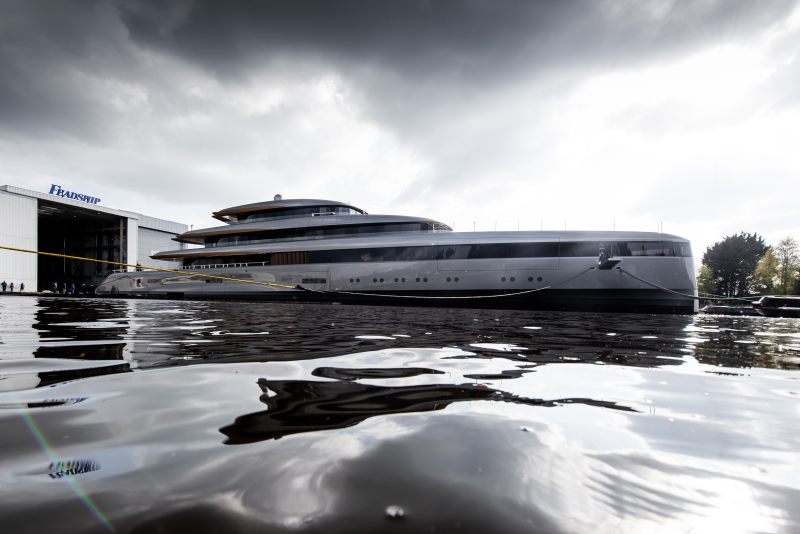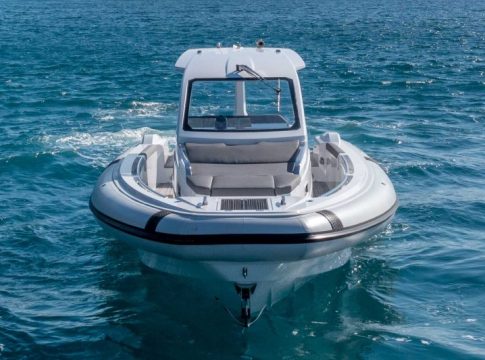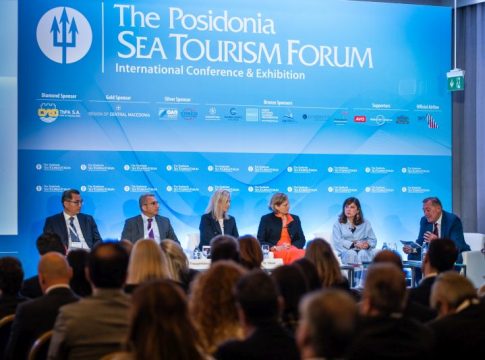One of the most technically advanced and dynamically designed Feadships of recent years has slipped out of her construction hall at the Feadship yard in Aalsmeer for final outfitting in advance of sea trials.
Project 710, as she is known at the yard, extends to 84 metres. According to the design team, the brief called for every yacht design norm to be questioned and challenged, both in terms of architecture and engineering, to create a next generation project. Her length is optically stretched by a low profile, horizontal styling features, and very clean shapes flowing aft from a strong bow showcasing strength and seaworthiness.
For the first time in years, Feadship has launched a yacht with a single level engine room, affording considerably more room for creativity with accommodation, in a layout as bold and modern as the exterior profile suggests. Both the exterior design and interior architecture and design are by the British firm RWD in collaboration with MONK design.
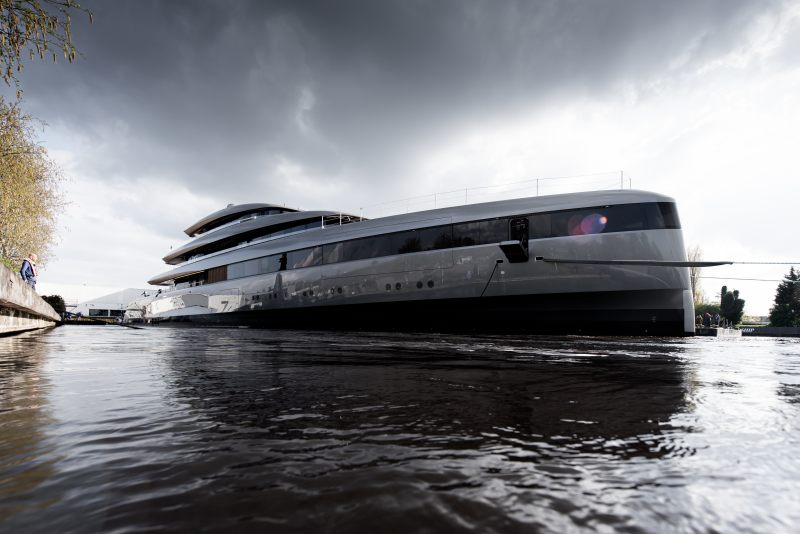
There are surprising destination spaces, such as an asymmetrical atrium staircase leading to a lower deck dining saloon, where an entire wall opens to reveal a terrace view just above sea level. Near the stern is an Aqua Lounge with massive windows below water level. In place of a mooring deck forward there is a revelatory bow observation lounge with double-curved glass floor-to-ceiling windows. Terraced aft decks float without pillars, while glass balustrades allow unobstructed views from both aft deck and fully glazed aft interior spaces, creating a vital connection to the natural environment.
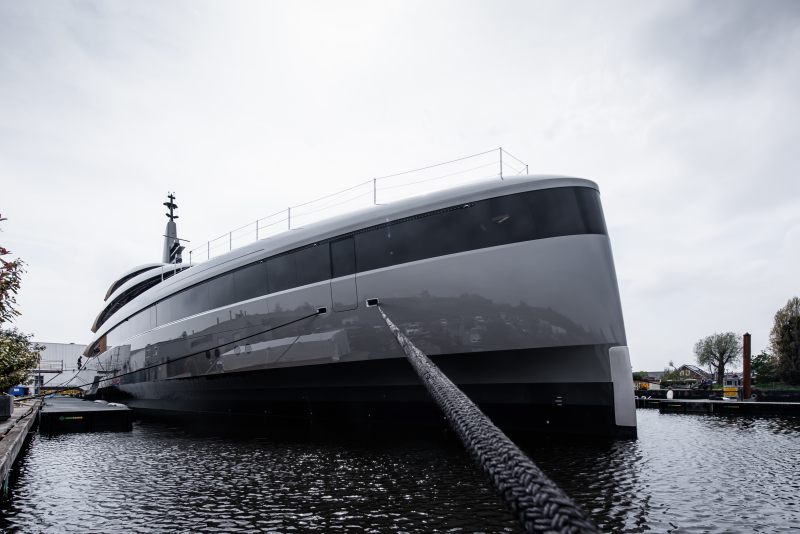
Striving for innovation and first-class engineering, Project 710 is the perfect next step on Feadship’s path toward building zero-emission superyachts by 2030. It is the first of the new generation of large yachts furthering carbon reduction through hulls optimised at cruising speed instead of top speed, weight control, advancements in electric propulsion, and the ability to run her generators on HVO, a second-generation biodiesel, a so-called net zero CO2 fuel. Sea trials and delivery fill will be HVO, reducing total CO2 emissions by about 90%.
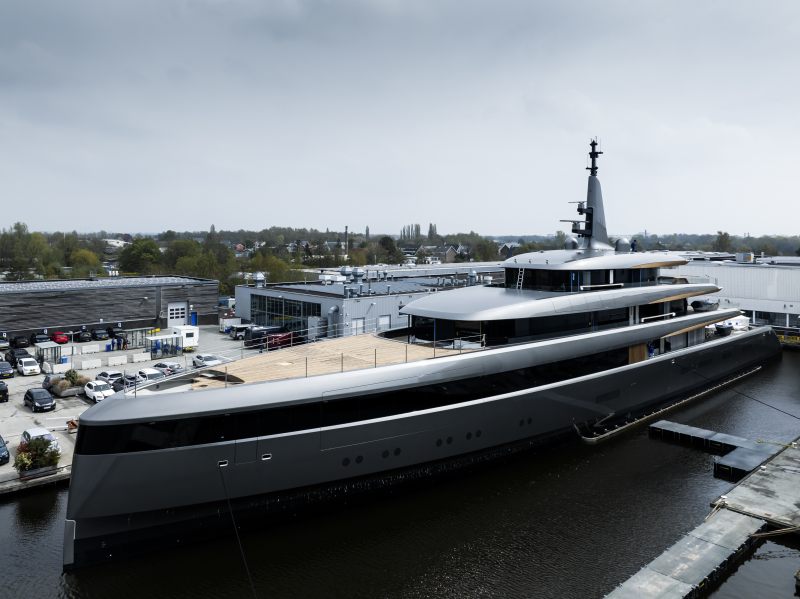
No drive shafts
Using Feadship’s Advanced Electrical Drive (FAED) program for diesel-electric hybrid power, Project 710 has 4.5 times more electrical storage capacity than our first hybrid yacht, Savannah. She has no drive shafts, and no rudders. Electric drive and steering are through a pair of electric Veth contra-rotating thrusters. Feadship and Veth collaborated on computational fluid dynamics (CFD) analysis of the drive legs and propellors’ shapes to maximize efficiency and minimize vibration.
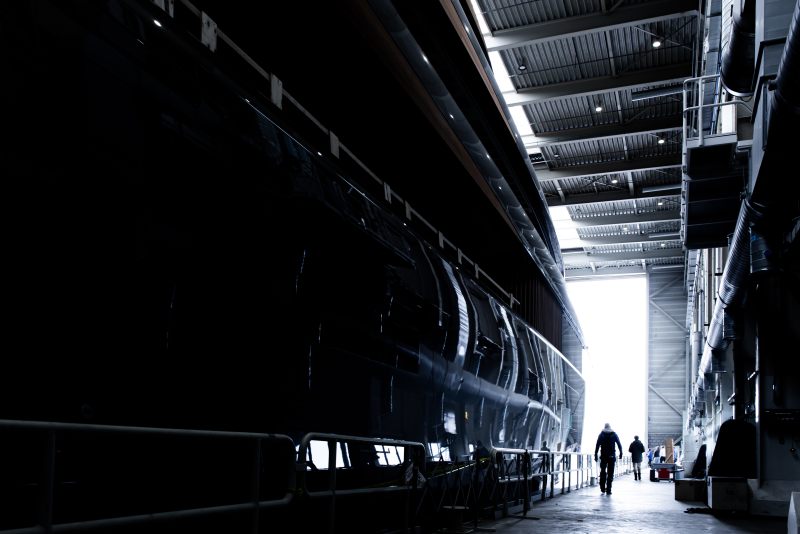
Providing energy for the luxury hotel load accounts for much of a yacht’s fuel consumption. For Project 710, the engineering team took a deep dive into capturing waste heat from the custom variable speed generators and air conditioner chiller to supply heat to the AC system, pool water, domestic water, engine preheating, and more. An innovative heat pump system allows the yacht to draw heat from seawater.
All these features (and more) were developed to connect to the surrounding environment within a next gen yachting platform that leaves minimal trace within that environment.



